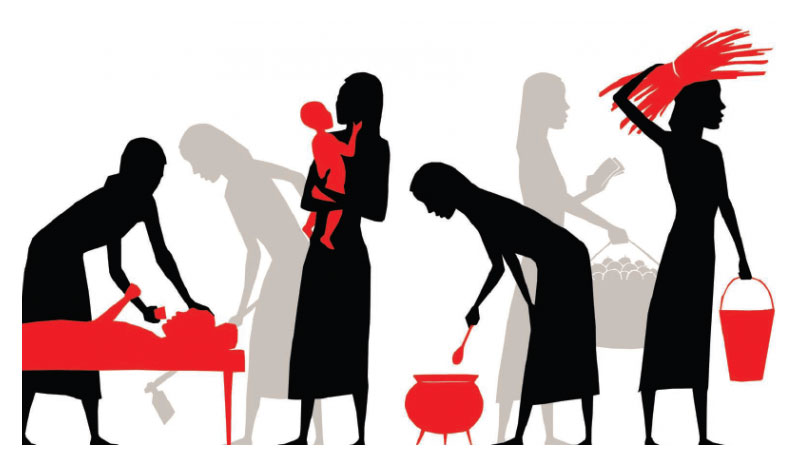Kazi Golam Tashfiq
Research Associate, Centre for Policy Dialogue
E-mail: tashfiq@cpd.org.bd
Recently the globe celebrated International Women’s day where almost everyone voiced support for gender equality on social media by using the hashtags by putting hashtags #BalanceforBetter and #IWD2019. The globe had come a long way towards gender equality since its first inception of celebrating International Women’s day globally in 1911. It is still progressing with a global agenda of gender equality (SDG 5). Whenever I see my fellow citizens using the hashtag #BalanceforBetter it calls to mind a critically important question: where does one start the balancing act? Undoubtedly, the globe is doing well in its pursuit of closing the gender wage gap in economic sphere but I personally doubt that we are doing enough to establish the balance of burden in terms of managing household chores across gender which has resulted in an imbalanced power distribution across genders in our society.
Where do we stand?
Every morning, my day starts with breakfast that has been prepared by my dearest mother before I leave for work. and the day usually ends with a plate full of freshly-made dinner. The time between my breakfast and dinner, my mother and I both work at our own paces and spaces—while I get recognised for my work, she does not get the same treatment in many cases. Most of the time, we take for granted, the benefits of the care work that the female members of our families provide us. Unfortunately, this is not the case in the domestic sphere, but extends to women at workplaces across the country.
Although many developed countries have included women’s unpaid work in their national accounting systems, Bangladesh is still lagging behind in this aspect. Studies have found that, in Bangladesh, women spend over six hours a day doing unpaid care work while their male counterparts spend just over an hour on such activities. A CPD study (2015) found that on an average, a female member of a household undertakes 12.1 non-SNA (System of National Accounts) activities on a typical day while the corresponding figure for a male member is only 2.7. The study also found that the value of women’s unpaid household work in Bangladesh was as high as 87.2 per cent of the country’s Gross Domestic Product (GDP). This inherent gender bias in national statistics is not only causing under-estimation of the national GDP but also transmits wrong signals to policy makers at both national and international spheres.
Challenges to be addressed
I believe we had limited the scope of the usage of the word ‘work’ to only those who work for financial compensation rather not those who are constantly working on a voluntary basis to make our lives easier and better at home in the context of Bangladesh. On top of that, there is the existing gender bias of our currently estimated GDP. However, solving the methodological bias of the estimate will depend on addressing a few more conceptual as well as methodological challenges. A classic example of these challenges can be defining the fine line between work and leisure. While a person can consider gardening as a leisure activity, other may find it as a household chore. Apart from these two challenges, there remain considerable data challenges for Bangladesh. Labour force surveys have proven to be useful for measuring women’s volunteer work, given that it collects all the details of the unpaid volunteer activities of women using a household satellite accounting approach.
While the government should work on addressing the technical challenges, we the citizens should not forget that charity begins at home. Unless we change our perceptions of the definition of the word ‘work’, the society as well as the economy won’t change. Making the definition a more inclusive one will not only bring gender equality in society, it will also take us one step further towards achieving the SDGs by 2030, as target 5.4 under goal 5 has clearly mentioned about recognising the unpaid care and domestic work through the provision of public services, infrastructure and protection policies. This will also reinforce the promotion of shared responsibility within the household and the family. However, our neighbouring country India had already realised the significance of accounting women’s unpaid work in national statistics and in view of that, the National Sample Survey Office (NSSO) of India had started to conduct a yearlong household survey to measure domestic work of household of its citizens especially women from this January. It is high time for Bangladesh to take lessons from its neighbours and take adequate measures to ensure that the voluntary contribution of women are reflected in national statistics.



